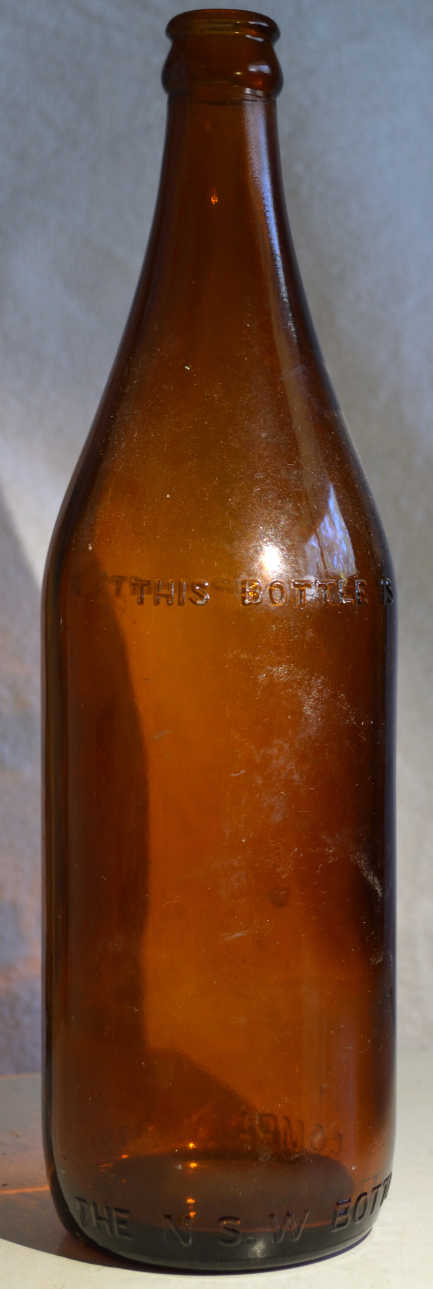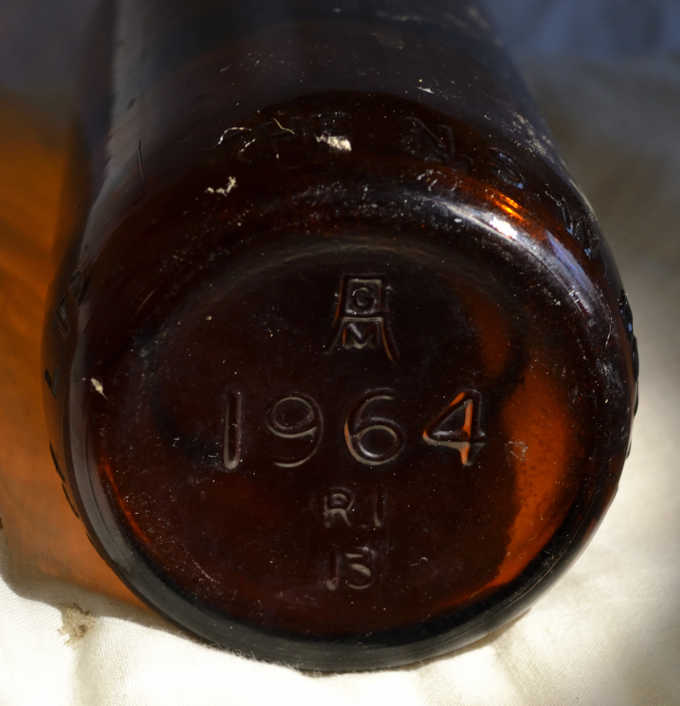
Many years ago, I found a beer bottle in the bush.

The base of the bottle is marked, presumably with its year of manufacture: 1964.

Around the body of the bottle is inscribed:
"this bottle is the property of
the n.s.w. bottle company pty.
ltd"
According to records held in the archives
of the Australian National University:
“The company was formed on 15 June 1916 and was owned by both
Tooth & Co Limited and Tooheys Limited. On 20 June 1916 Tooth &
Co Ltd and Tooheys Limited entered into an agreement to sell to the
company the business of the Brewers Bottle Association. The company
supplied bottles to the two brewery companies and also ran a bottle
recovery system in New South Wales, with operations in Tamworth, Taree,
Dubbo, Queanbeyan and Wagga Wagga. Secondhand bottles were recovered
from Butler & Norman Pty Ltd, J McCarthy & Co Ltd and other
independent merchants. New bottles were purchased from the Australian
Glass Manufacturers Co and Glass Containers Ltd. The company was
deregistered on 9 July 1990.”
The Brewers Bottle Association apparently operated for many
years before the takeover, but I've found no records apart from a 1912
report of a fire in one of their depots. For the better part of a
century and probably far longer, business thrived in Australia on the
reuse of glass bottles.
I remember a bottle yard on Anzac Parade in Maroubra in the 1950s. Bottles that the corner shop wouldn't accept could usually be exchanged there for the reward of a penny or so. If I remember correctly, every bottle was worth something. I don't remember mountains of glass, so little valued that it's considered a waste problem. What changed?
We got “efficient” or maybe “cost-effective”. Someone figured out that it's cheaper to throw away glass than to reuse it. Is it really efficient?
As I see it, we've exchanged reuse of bottles (along with associated business and employment opportunities) for an intractable waste problem. The waste problem is the cost that some businesses aren't paying. That's why it's cheap (for them). The cost is “externalised” (not paid by the business that profits).
Much of business these days relies on evading costs: getting someone else to pay, so the business profits more. Plastics are a case in point. Plastic is cheap because we don't pay the full cost up-front. We pay later in dead wildlife, pollution and environmental degradation. The pollution even extends to our own bodies.
In Australian vernacular, one who doesn't pay their full share is termed a bludger. Another society might label them freeloaders. Arranging to evade some of your costs is accepted business practice. Much of business then is based on bludging or freeloading.
How can we make sure that the bludgers can't avoid paying? That should at
least reduce incentives to do harm for profit.
 This work is licensed under a Creative Commons Attribution 4.0 International License. |
Feedback: This e-mail address is being protected from spam bots, you need JavaScript enabled to view it. |